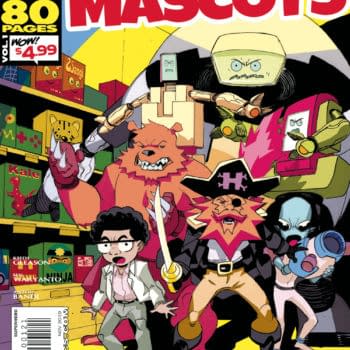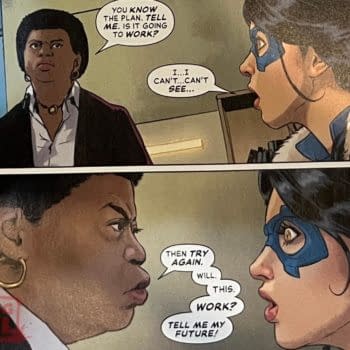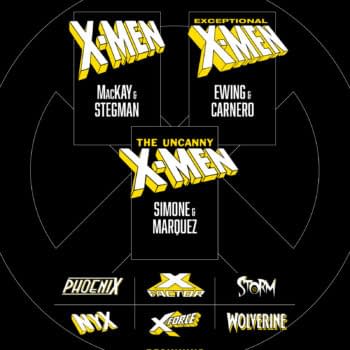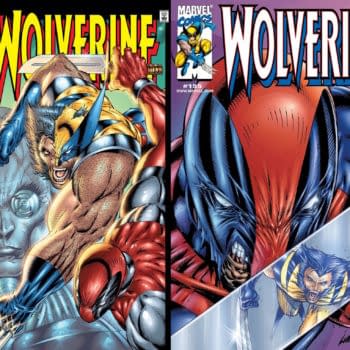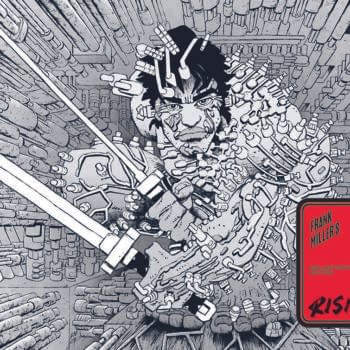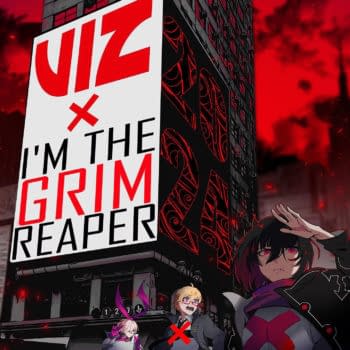Posted in: Comics, Recent Updates | Tagged: andrew wheeler, black, Comics, no more mutants, race
No More Mutants #6 by Andrew Wheeler – Black Label
Andrew Wheeler writes for Bleeding Cool;

The answer I'm looking for is, of course, Black Widow. She's not black at all! Like Black Canary, Black Widow predates the 70s trend for using the word 'Black' to denote the skin colour of superheroes and villains. She is a white Russian masquerading as a black Russian.
All right, Power Man would also be an acceptable answer as well. He somehow avoided having the word 'Black' stuck on his name despite belonging to the right era, possibly because calling him 'Black Power Man' would have stirred up far too much trouble.
The existence of these 'Black label' characters from the 60s and 70s is one of superhero comics' most embarrassing artefacts. Skin colour descriptors do appear on characters from other races – Red Wolf springs to mind, and the especially offensive Yellow Claw – but it's most obvious with characters of African origin or descent – a list that also includes Black Manta (1967), Black Talon (1974), the Black Spider (1976), the Black Musketeers (1978) and DC's animated Black Vulcan (1977).
Black Panther, created in 1966, is probably the best known example of this trend for black characters with Black names, but he may have got away with it better than most both because he bears the name of a real animal, and because it's a name with powerful resonance in the African-American community. Also, we're probably just used to it by now.
Black Goliath may be the most unfortunate member of this company. Writer Tony Isabella should be lauded for his good intentions in launching Black Goliath and creating Black Lightning, DC's first African-American superhero, but his character names have not aged well, and the name Black Goliath is especially concerning given that it implies that he is a black version of the superhero Goliath, as if he were not entitled to use the original codename.
This rebranding trick is more often reserved for female versions of male characters, who get codenames with a 'She' or a 'Lady' stapled to the front. That makes a degree of sense when the character is iconic, or when the male version is still running around, but neither of the previous Goliaths were using the name when Black Goliath adopted it, and both had more iconic identities of their own, as Ant-Man and Hawkeye.
One might counter that Red Hulk is also labelled and distinguished by his skin colour, but Red Hulk is literally a red Hulk, and in reality just as Caucasian as the original. If Scott Lang were an Anabaptist or if Wally West were a vegan, they wouldn't be called Anabaptist Ant-Man or Vegan Flash. Erik Josten wasn't Ginger Goliath.
Thankfully the name Black Goliath was dropped after only four years, and the character's nephew and successor goes by Goliath. We're unlikely to see another character saddled with a name like that any time soon, even while the Thor Girls and the Lady Bullseyes continue to accumulate. Yet we do still see black versions of white characters, dating back at least as far as John Stewart, the black Green Lantern.
Stewart was followed by James Rhodes, the black Iron Man; Steel, the black Superman; Michael Holt, the black Mister Terrific; Shiloh Norman, the black Mister Miracle; Josiah Bradley, the black Captain America; Jason Rusch, the black Firestorm; Crispus Allen, the black Spectre; Jackson Hyde, the black Aqualad; and Ultimate Nick Fury, the black Nick Fury.
This is a derivative approach, but most of these characters have at least had a chance to headline their own books, which is more than can be said for most other black superheroes. I'm reminded of something Avengers editor Tom Brevoort once said; "whenever your leads are white American males, you've got a better chance of reaching more people overall". Are these latter day black Goliaths the only way to sell black heroes to an audience that reflexively rejects them? Is it easier for readers to accept a black superhero if he's wearing hand-me-down clothing?
Marvel made good use of this trope with its Truth storyline about the creation of a black Captain America during World War II. It made perfect sense that the Super Soldier serum would be tested on black soldiers, as a way of meshing Marvel history with the real history of the Tuskagee experiment.
Yet when Truth was published, editor Axel Alonso discovered that there were "outright racists who just don't like the idea of a black man in the Cap uniform". Any black Captain America was too much for some readers, and Truth seemed to imply that perhaps the first Captain America was black. Series co-creator Kyle Baker noted, "We got a lot of grief from the Captain America fans on that series until the fifth and sixth issues came out; when it turned out that we hadn't tinkered with the continuity."
Then there was the furore over the idea of a black Spider-Man – not in the comics, but in the reboot of the movies. Fans of Community star Donald Glover launched a campaign to cast him in the role. He could have been terrific – he's young, talented, nerdy, and the right physical type. Spidey creator Stan Lee describes the character as "the superhero who could be you", so it could easily be a black guy under the mask.
Yet plenty of fans didn't see it that way. Community creator Dan Harmon noted that the Glover campaign uncovered "[a] curious eruption of a previously unknown demographic of racist comic-book readers". Stan Lee said that "anybody should have a chance to audition for the role", but even he said that a black Peter Parker "might be confusing to people". Online comments called the campaign "stupid" and "racist", and said that it would destroy Spider-Man, destroy a piece of America, or end with the Klan marching on Hollywood.
A persuasive argument can be made that Spider-Man in the movies should look like Spider-Man in the comics. That's not unreasonable. A case can be made that Marvel should not rewrite its own history to strip Steve Rogers of his position as the first Captain America. That's not a crazy position.
What worries me is that people might make these arguments for the wrong reasons. Rationally speaking, it wouldn't undermine the comic version of Spider-Man if one of the alternative versions was black. There are zombie and vampire Spider-Men; why not a black one? Logically, it doesn't demean Steve Rogers' achievements or his position in the Marvel Universe if there's a secret history behind his origin; everything he accomplished still holds, and the story adds layers to the character's legend. Some fans oppose these ideas with a passion out of all proportion to the matter, and maybe that's just comics, but I think the people making these arguments should examine their instincts more closely.
There is one solid argument against a black Spider-Man, or a black Captain America, or a Black Goliath, and that's that we shouldn't need them. Sadly, we're not there yet. As long as publishers believe that derivative versions are the easiest way to sell minority heroes to an audience that prefers white American males, we're stuck with an unfortunate compromise. For now, we may need a black Spider-Man – and the day that no-one finds the idea objectionable is the day we'll know we don't need one any more.
Andrew Wheeler writes about food and comics and gaiety. Sometimes simultaneously. He is the author of Eat Britain!


